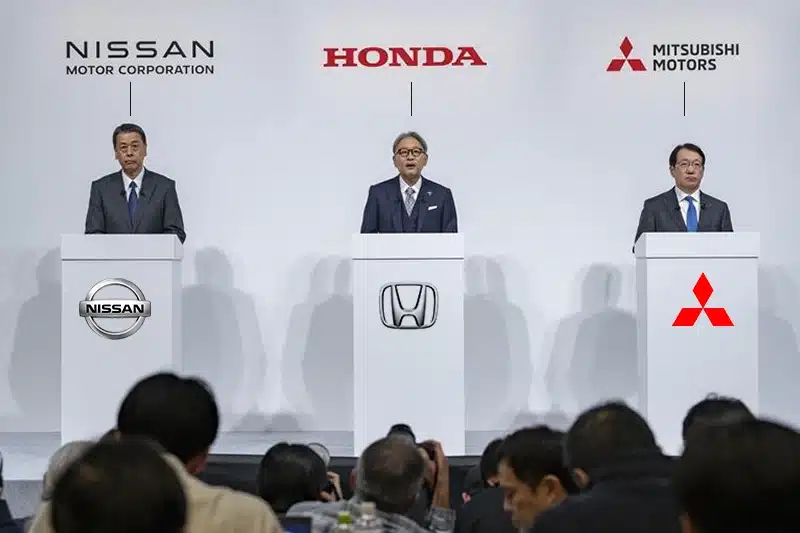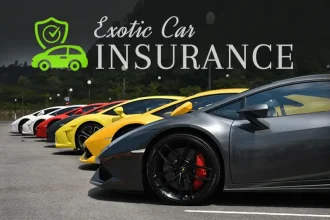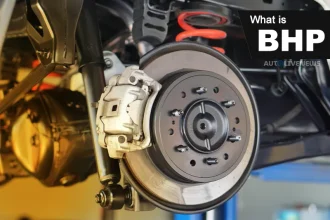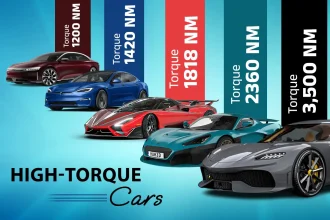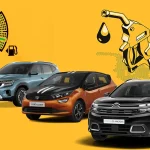Last week, Japanese business newspaper Nikkei reported that the Japanese automobile giants Nissan and Honda were discussing a possible merger. The companies involved have since confirmed the truth—that the Honda and Nissan merger is happening.
The Honda and Nissan merger would become the third-largest car manufacturer in the world, behind only Toyota and Volkswagen. This joint entity would have a combined value of approximately $54 billion—of which Honda contributes $43 billion. What does Nissan and Honda merging mean for the automobile industry? Let’s take a look.
An Overview of Honda, Nissan, and Mitsubishi
| Car Manufacturer | Market Value | Cars Sold in 2023 |
|---|---|---|
| Honda | 6.74 trillion yen | 3.8 million cars in 2023 |
| Nissan | 1.67 trillion yen | 3 million cars |
| Mitsubishi | 717 billion yen | 700,000 cars in 2023 |
How the Nissan and Honda Merger Benefits Both Companies
The Honda and Nissan merger, with Mitsubishi potentially joining in, would create the third-largest automobile seller in the world and sell roughly 8 million cars per year. Nissan and Honda are the second and third largest car manufacturers in Japan and sold a combined total of approximately 7.5 million cars last year. According to Toshihiro Mibe, CEO of Honda, the joint company could generate 30 trillion yen ($191.4 billion) in revenue and over 3 trillion yen in operating profit.
While the world’s largest car manufacturer, Toyota, adopted hybrid technology relatively early, Nissan and Honda haven’t kept up with the switch to clean energy and EVs. As a result, these Japanese companies have been struggling to compete with EV makers like BYD and Tesla. Here are some ways the Honda Nissan merger will prove beneficial to both businesses:
Standardized Vehicle Platforms
As part of the Honda-Nissan alliance, sharing vehicle platforms and powertrains would reduce the cost of production and simplify the manufacturing process of both carmakers. Thus, sharing platforms and parts would increase revenue and help both brands streamline their product portfolio.
Research and Development
Both companies would also potentially increase their shared R&D. By integrating technology such as EV powertrains and sharing research on autonomous driving and software-driven cars, the Nissan and Honda merger will see the integration of their back-office operations and ultimately their supply chain.
Scaling the Competition
In the rapidly changing automobile world, smaller car manufacturers often struggle to keep up. Both Honda and Nissan have been struggling with low sales and profit margins due to the increasing competition from EV makers. Merging the revenue of these two companies could potentially help them rival the massively dominant Toyota MotorCorp and be able to face international competitors more easily as well.
Honda
Honda is a multinational conglomerate automotive manufacturer based in Tokyo, Japan.
Strengths:
- Honda is the world’s no. 1 manufacturer of internal combustion engines by volume and also one of the world’s largest motorcycle manufacturers.
- It is the second largest carmaker in Japan and ranked no. 7 in the world in 2023 in terms of sales
- Honda makes excellent hybrid powertrains
- Honda is doing extremely well in the North American market
- Honda has a diverse product portfolio; apart from cars, it sells motorcycles, engines, power equipment, and private jets.
Weaknesses:
- Honda’s most important market is the United States, but only sells one EV there—the Prologue
- Honda’s sales drop in China in the first half of the fiscal year led to global net profit dropping by 20%
- Honda needs to make higher investments in R&D and technological advancements to keep up with the rapidly changing automobile sector.
Benefits from the merger:
- Through the Nissan merger Honda can benefit from Nissan’s presence in the European market
- Honda can adopt Nissan’s truck-based body-on-frame and SUV platforms to enter a new market and expand their product portfolio
- Nissan has expertise in building battery-operated electric cars, while Mitsubishi offers the same benefit for plug-in hybrids. Honda could potentially use their R&D to perfect their own EVs.
Nissan
Nissan is an automobile manufacturer based in Kanagawa, Japan.
Strengths:
- Nissan was the second-largest car manufacturer in Japan and the 8th largest car manufacturer in the world in 2023.
- It has a strong presence in the European market
- Nissan manufactures excellent body-on-frame vehicles like the Frontier and the Armada
- Nissan was the world’s largest electric vehicle (EV) manufacturer before it was eventually surpassed by Tesla
- Nissan owns 34%, or one-third, of Mitsubishi Motors and a 15% voting stake in Renault
- Despite the losses, Nissan has solid cash reserves and a seriously strong financial structure.
Weaknesses:
- Nissan reported a loss of $421 million in the last quarter of 2020
- Nissan does not have a strong presence in the North American market
- Nissan cut its annual operating profit forecast by 17% in the first half of 2024, and in November released an emergency turnaround plan that further reduced it to 70%
- Nissan plans to cut global production capacity by 20% and has laid off more than 12,500 employees, citing losses due to the COVID-19 pandemic
- The Nissan and Honda merger may inevitably put the Nissan-Renault alliance in jeopardy.
Benefits from the merger:
- Nissan is on the brink of financial ruin that could be stabilized through a partnership with the more globally successful Honda
- Nissan can integrate Honda’s technically superior hybrid and ICE powertrains into their best-selling vehicles
- Nissan can expand its reach in North America through Honda’s well-developed sales network.
Mitsubishi
Mitsubishi is a Japanese multinational automobile manufacturer based in Tokyo, Japan.
Strengths:
- Mitsubishi is involved in the Nissan-Renault alliance
- It is the 6th largest carmaker in Japan in terms of sales
- Mitsubishi has extensive experience participating in international motorsports
- They are well-established in the EV and SUV sectors
- The Mitsubishi Group and Renault-Nissan-Mitsubishi Alliance allow the company to invest extensively in R&D for vehicle technology.
Weaknesses:
- Mitsubishi has had to exit international markets such as Western Europe, the UK, and Australia due to suffering severe losses. This has affected their global market reach.
- Notably, Mitsubishi has exited the Chinese market, which is the largest and most profitable automobile market in the world
- Mitsubishi Motors has admitted twice that the company was systematically covering up defect problems in its vehicles.
Benefits from the merger:
- Currently, Mitsubishi operates at a relatively smaller scale. A merger could see it rapidly expanding its sales network and global reach
- Mitsubishi can utilize Honda’s more widespread marketing efforts to increase brand equity and popularity.
Why this Merger Could be a Lifesaver For Nissan
Nissan has been struggling both globally and in Japan. This November, it reported a quarterly loss of 9.3 billion yen or $61 million. Drastic measures followed: the carmaker announced that it was laying off roughly 6% of its global workforce and reducing its global production capacity by as much as 20%. CEO Makoto Uchida reportedly took a 50% pay cut as well.
If the significant losses weren’t enough, the company’s internal affairs were a wreck. Nissan’s former CEO, Carlos Ghosn, was arrested in 2018 under charges of concealing income. Ghosn later received bail and, when on house arrest, was smuggled out of the country inside a musical instrument box. He currently resides in Lebanon. Ghosn called the Honda and Nissan merger “a desperate move,” stating to Bloomberg, “It’s not a pragmatic deal because frankly, the synergies between the two companies are difficult to find.”
Nissan has also been working in collaboration with French carmaker Renault for a long time. The Nissan and Honda merger may inevitably put the Nissan-Renault alliance in jeopardy.
Legal Details Of The Merger
The details of the Honda-Nissan merger were revealed in a joint press conference in Tokyo. The two companies have signed a Memorandum of Understanding (MoU) that signals the beginning of more merger talks.
As part of the Nissan-Honda merger, Honda and Nissan will operate as independent companies but will streamline their operations under a joint holding company that will be listed on the Tokyo Stock Exchange. To create this holding company and finalize the deal, the two need approval from all company shareholders. Honda, being larger and more successful, will nominate the board members for the joint company.
Discussions around the Honda and Nissan merger will conclude around June 2025.
Mitsubishi Motors’ Involvement in the Honda and Nissan Merger
Nissan is a top shareholder in Mitsubishi Motors, with a 24% stake in the Japanese company. As Nissan’s strategic partner, Mitsubishi has been offered the option of joining the Honda and Nissan merger as well. Mitsubishi Motors has already signed an MoU, stating that it will reveal its decision regarding the merger by the end of January 2025.
Conclusion
The world’s largest car manufacturer, Toyota Motor Corp., shares a partnership with three Japanese carmakers: Suzuki, Mazda, and Subaru. The Honda and Nissan merger represents the growing trend towards consolidation. Honda CEO Toshihiro Mibe has stated that the companies have decided they can better navigate the changing industry together.
Will the Honda and Nissan merger mark global success for the two companies? Or is Carlos Ghosn right, and will this “desperate move” spell ruin for these Japanese auto giants? It’s too soon to tell. Keep reading AUTOLIVENEWS blogs to know what will happen when Nissan and Honda merge.
Frequently Asked Questions ( FAQs)
Which car companies are merging?
Honda, Nissan, and Mitsubishi are currently discussing plans to merge their companies under one holding company.
Has Honda merged with Nissan?
Honda and Nissan are currently discussing the details of the merger of their two companies. Honda Nissan merger talks may conclude by 2026.
Are Honda and Nissan to merge with Mitsubishi?
Mitsubishi is Nissan’s strategic partner. It has been offered a chance to join the Honda and Nissan merger and will reveal its decision by the end of January 2025.



